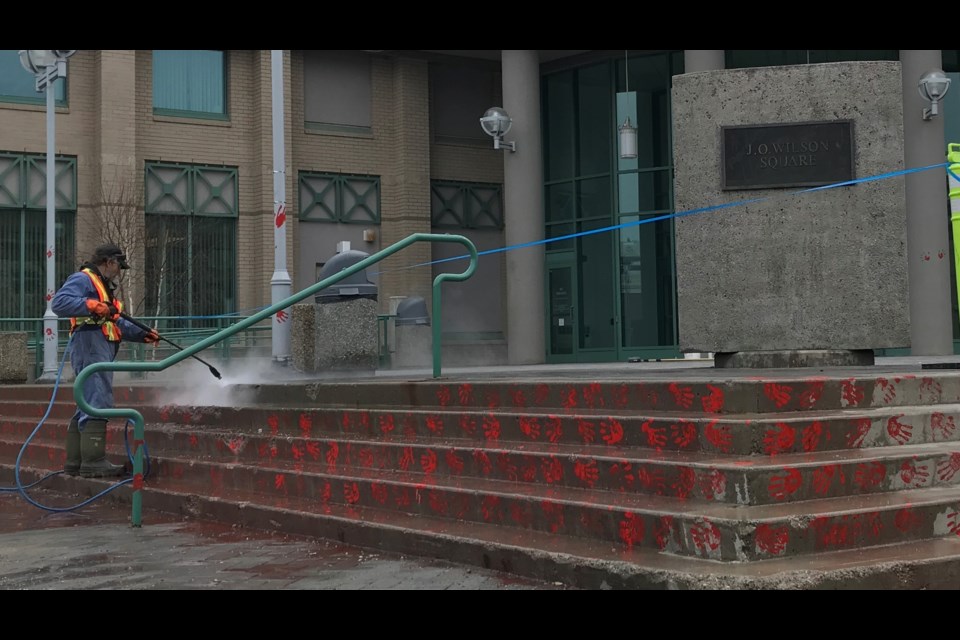A cleanup crew was called in this morning after the courthouse steps were covered with red hand prints.
Washable paint was used and the intent was to draw attention to the opioid crisis and a rally on the issue planned for this evening. But Jordan Harris, program coordinator for The POUNDS Project, which is organizing the rally, conceded it drew a mixed reaction.
"Positive feedback for the people who stand in solidarity with us," she said. "People have told us that it's really impactful, that it's inspiring to see people speaking out and demanding attention on a huge problem that is really close to home for a lot of people.
"There has also been some negative attention. People are upset that public property was temporarily defaced, I guess you could say. But it was not permanent and has been washed off at this point."
The columns at the courthouse entrance were also targeted with hand prints and "We are Dying, Wake Up" was written on the plinth in front of the building.
With the help of a pressure washer, a worker made progress on cleaning off the spots on this morning.
Harris said the rally is being held as part of a national campaign called We Still Grieve and in memory of 10,000 Canadians who have died from overdoses in the last three years. It is also being held to boost a call for decriminalizing drug use and ensuring a safe supply.
"When we criminalize what is essentially a health and a medical issue, when we moralize it, we create a whole new kind of vulnerability and negative perception of people and it really reduces the compassion and the approach that we use to deal with people who use substances," Harris said.
"If we decriminalize substances and look at treating people instead them to jail, it creates a whole new world of possibility for people who use substances."
A safe supply, meanwhile, "would likely end this crisis."
"People are dying because of the unpredictability of the supply because the illicit market is so contaminated with Fentanyl and other opioid analogs that are just so potent and toxic, so if we had a regulated and safe supply, people wouldn't be dying.
"We've seen it with the prohibition of alcohol - when a substance isn't regulated, it inevitably becomes toxic and highly dangerous. And if we regulate it and make it safe, nobody has to die."
The rally is also being held to call for a national state of emergency. Harris said B.C. is the only province to declare a public health emergency, "but it's happening all across the country."
POUNDS stands for Preventing Overdose, UNDoing Stigma and the group holds a contract from the provincial government to provide harm reduction services around the city.
Harris declined to say who put the hand prints on the steps. "I'm not going to answer that right now," she said.
Prince George RCMP Cpl. Craig Douglass said an investigation has been opened on the act.
"Whether the paint washes off or not, without permission of the property owner, which would be the provincial government essentially, it could be mischief," he said. "And obviously, we want to determine who is responsible and put a package together for Crown counsel and they can decide whether or not they want to proceed with charges."



